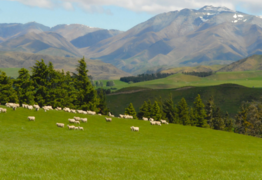Residents urged to protect Southland’s air quality
Olivia Brandt
12 May 2022, 3:45 AM

Southlanders are being reminded to play their part in maintaining the region’s air quality, as cold winter temperatures hit.
With the arrival of cooler weather and the use of fires for home heating increasing, both smoke and pollutant PM10 (the measurement of particles in the air) increase.
Measurements of air quality began on May 1.
Environment Southland air quality scientist Owen West says readings from this first week for both Invercargill and Gore have been slightly elevated.
“Keeping the fire burning hot and bright, burning only dry wood, not banking your fire overnight and ensuring the chimney is swept and the burner maintained will all help reduce the volume of smoke and is a big step to cleaner air this winter.”
“Last winter, Southland made fantastic progress with Invercargill and Gore having their best air quality results on record over the winter period.”
Over the winter period from 1 May through to 31 August, outdoor burning is prohibited within the Invercargill and Gore airsheds.
Those outside the airsheds can continue to burn but must adhere to rules such as not burning a number of prohibited items including baleage wrap and treated timber.
“The Regional Air Plan includes rules to help improve air quality. Non-compliant burners are being progressively phased out. As of January 2022 any burner in Invercargill and Gore that was installed before 1 January 2001 must now be replaced by a compliant burner,” says West.
Environment Southland operates a Good Wood approved suppliers scheme which firewood retailers voluntarily agree to be part of, details of which can be found online.
For live PM10 readings for Invercargill and Gore, and further information on what else you can do to improve air quality, go to www.BreatheEasySouthland.co.nz



